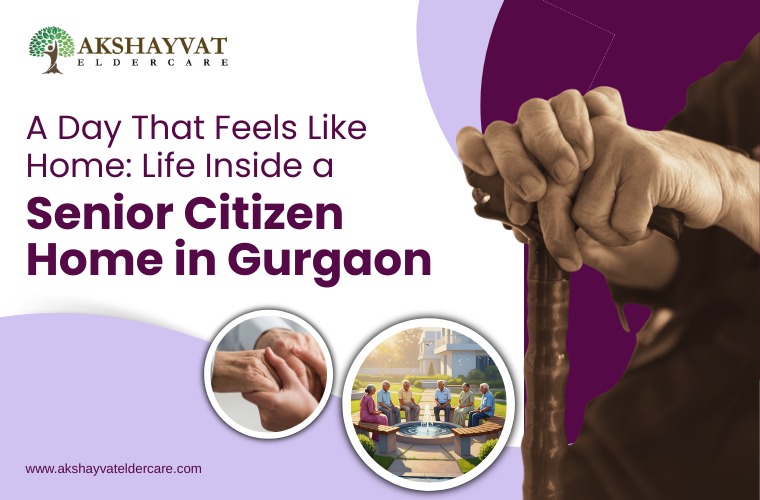
Aging is a natural part of life, but as seniors grow older, their needs often change. While some can manage well with occasional assistance, others require constant supervision and care. Families often struggle with the decision of when to transition their loved one to 24/7 care. It’s not always an easy choice, but recognizing the signs can help ensure that seniors receive the right level of support, safety, and comfort.
Understanding 24/7 Care
24/7 care provides round-the-clock assistance for seniors who need continuous monitoring and help with daily tasks. This type of care can be provided in specialized elder care centers, nursing homes, or through in-home care services. The goal is to enhance quality of life, ensure safety, and provide medical and emotional support whenever needed.
Key Signs That Indicate the Need for 24/7 Care
1. Frequent Falls and Safety Concerns
One of the most telling signs that a senior may need 24/7 care is an increased risk of falls. If your loved one has had multiple falls, near-misses, or difficulty maintaining balance, it could indicate that they require constant supervision to prevent serious injuries. Conditions like arthritis, osteoporosis, and muscle weakness can make movement challenging, and lack of timely assistance can lead to accidents.
2. Memory Loss and Cognitive Decline
Dementia and Alzheimer’s disease can progress to a stage where the individual is unable to recognize familiar places, remember important details, or complete basic tasks. Signs to watch for include:
- Forgetting to take medications or overdosing accidentally.
- Getting lost in familiar places or wandering outside the home.
- Confusion about time, place, or identity of family members.
If memory loss is putting your loved one at risk, 24/7 care ensures that they are supervised, safe, and provided with cognitive stimulation.
3. Inability to Perform Daily Activities (ADLs)
Basic daily activities, known as Activities of Daily Living (ADLs), include tasks such as dressing, bathing, eating, and using the restroom. If a senior struggles with multiple ADLs and requires constant assistance, a full-time caregiver is essential to maintain hygiene, dignity, and overall well-being.
4. Poor Nutrition and Weight Loss
Malnutrition and sudden weight loss are major concerns for aging individuals. If your loved one is:
- Forgetting to eat or skipping meals.
- Unable to cook due to physical limitations.
- Struggling with chewing or swallowing food.
Then, 24/7 care can help ensure they receive proper nutrition through balanced, home-style meals tailored to their dietary needs.
5. Increased Medical Needs
Chronic illnesses like diabetes, heart disease, and respiratory conditions require regular monitoring. Seniors with conditions that need frequent medical attention—such as **wound care, oxygen therapy, injections, or pain management—**benefit from 24/7 care with trained medical professionals available at all times.
6. Social Withdrawal and Emotional Distress
Isolation can lead to depression and anxiety in seniors. If your loved one is showing signs of withdrawal, mood swings, or lack of interest in activities they once enjoyed, they may benefit from an environment where they receive companionship, emotional support, and engagement in social activities.
7. Caregiver Burnout
Family caregivers often devote significant time and energy to their aging relatives. However, constant caregiving can take a physical and emotional toll. If you or another family member is feeling overwhelmed, exhausted, or struggling to balance caregiving with other responsibilities, transitioning to 24/7 professional care can provide peace of mind while ensuring the best support for your loved one.
How 24/7 Care at Akshayvat Eldercare Helps
At Akshayvat Eldercare, we understand the challenges families face when deciding on full-time care. Our comprehensive elder care services ensure that seniors receive:
- Round-the-clock medical support and nursing care
- Personalized assistance with daily activities
- Engaging social and recreational activities
- Nutritious meals and specialized dietary plans
- A safe, secure, and homely environment
Making the Right Decision
Deciding when to transition to 24/7 eldercare care is deeply personal. If your loved one is experiencing any of the above signs, it may be time to explore full-time care options. The goal is not just to extend life but to improve its quality, ensuring dignity, comfort and companionship.
If you are unsure whether your loved one needs 24/7 care, reach out to us at Akshayvat Eldercare for a personalized consultation. Let’s find the best care solution together!
If you’re still unsure whether your loved one needs 24/7 care or a different form of support, read our guide on recognizing when your aging parent needs assisted living. It can help you compare levels of care and make a more informed decision.
At Akshayvat Eldercare, we offer compassionate, expert-led services including 24×7 Elder Care, Rehabilitation Services, and specialized Dementia Care tailored to your family’s needs.
Reach out for a personalized consultation—let’s find the best care solution together.

